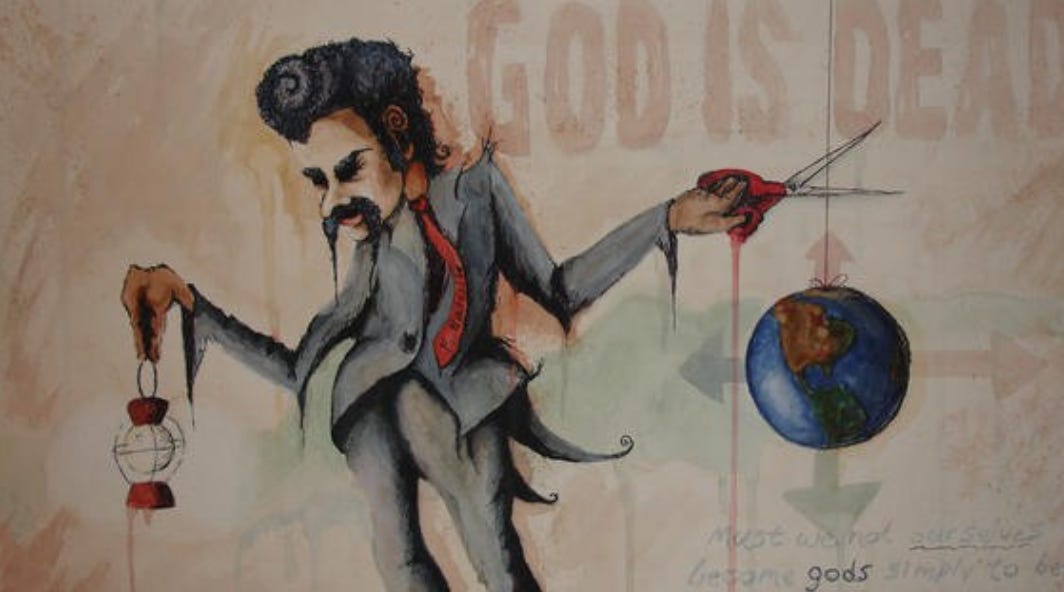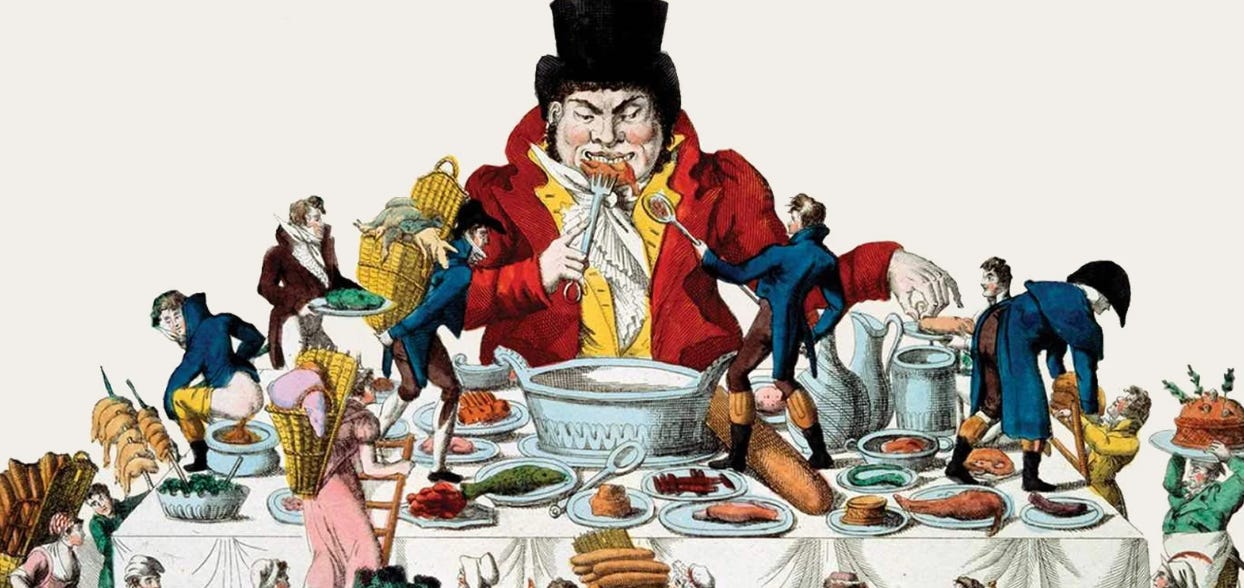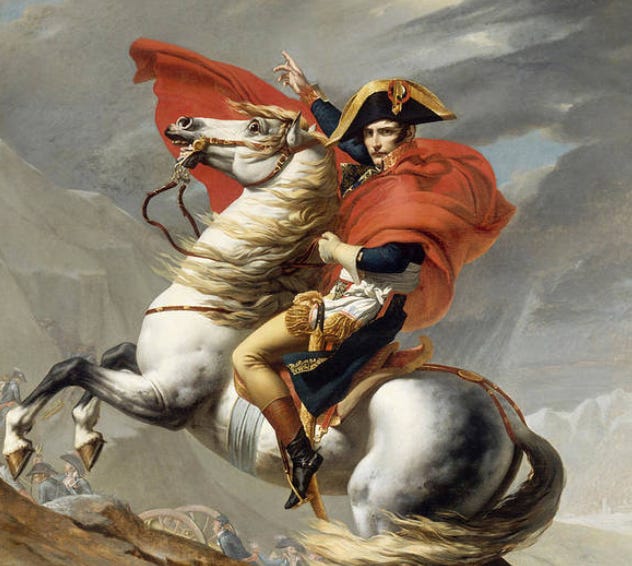Nietzsche Provides A Path Forward
Using Active Nihilism As An Antidote To Modern Meaninglessness
From the madman’s proclamation about the death of God and Nietzsche’s observation of God’s looming shadow, Nietzsche believed that nihilism was here and it was here to stay for the foreseeable future. Nietzsche believed that as more and more people came to realize that their moral systems(Christianity primarily but other religions as well) depended on metaphysical structures(all-powerful God, heaven, hell, etc.) that they no longer believed in, nihilism would fill the void. However, this transition from religious-based morality into nihilism does not necessarily need to be a negative one. The transition can be seen as an opportunity to re-evaluate our values and possibly become something greater than we have ever been as a species. In order to do that, however, we need to move toward or embrace certain kinds of nihilism and turn away from other kinds. Nietzsche offers us such a path. In this paper, I wish to accomplish two related objectives. First, I wish to describe the different forms of nihilism that Nietzsche writes about and distinguish between them. And secondly, I want to describe why it is important for us to move toward certain types of nihilism and open ourselves up to it, rather than evade it and/or try to ignore it.
Briefly, before describing the different forms of nihilism that Nietzsche gives us, I want to go over generally what Christian morality does/did for us from Nietzsche’s perspective. I am focusing on Christian morality because that is what Nietzsche was primarily responding to. In section four of book one in ‘the will to power’, Nietzsche gives four quick advantages of the Christian moral hypothesis. One being, it granted man an absolute value. Two, it gave meaning and reason for the existence of evil. Three, it gave us knowledge of absolute values and therefore knowledge of what is most important. And four, it kept humans from despising themselves, it was a means of preservation. In all, it served as an antidote against nihilism, practical and theoretical. Now, from these four examples that Nietzsche gave us, it is clear that Christianity, when fully ingrained in society, is playing a major role not only in people's understanding of reality generally but in their day-to-day lives, the decisions they make, and what they deem good and bad. However, once rationalism began to sweep across Europe beginning in the mid-17th century, many people began to find Christianity as a whole less and less believable. European people, though, continued in many ways to live with Christian beliefs in spite of their faith beginning to wane. This is what Nietzsche is referring to when he discusses God’s looming shadow. That is, Christian-like moral beliefs, religious or spiritual language-language that anthropomorphizes nature, cultural artifacts such as churches and crosses, Christmas celebrations, etc, that exist in spite of people’s lack of faith in the metaphysics of Christianity. God’s looming shadow did not seem to disturb many of Nietzsche’s contemporaries or fellow philosophers around his time. Just as now, many people seemed to believe that secular approaches to ethics and morality would be able to preserve a large portion of our common moral understandings and beliefs. Nietzsche, however, did not find this line of reasoning convincing and took a much more extreme view of what is to come of European people's morality and understanding of the world. Nietzsche’s understanding of psychology had him believe that when an extreme position that someone holds collapses(such as a belief in ultimate values-God), it is not replaced with a moderate or balanced belief, but with an opposite extreme position(such as a belief that no values exist). And this is exactly what Nietzsche believed was happening and what he believed was the fate of the European people. A quote to summarize Nietzsche’s seriousness on this topic from ‘the gay science’ book 5, section 343, “The greatest recent event-that God is dead; that the belief in the Christian God has become unbelievable-is already starting to cast its first shadow over Europe...Even less may one suppose many to know at all what this event really means- and, now that this faith has been undermined, how much must collapse because it was built on this faith, leaned on it, had grown into it- for example, our entire European morality.”.
Now, unlike many other intellectuals of his time, Nietzsche believed that the death of God(the lack of belief in the metaphysics of Christianity) was resulting in, and would continue to result in, widespread nihilism. Nihilism is usually spoken about in negative terms and usually means something like the rejection of moral principles, the belief that life is meaningless, or as a skeptical view, that nothing in the world has a real existence. Nietzsche, however, makes distinctions between different types of nihilism in ‘the will to power’, not all of which are negative. He broadly breaks nihilism down into four different types, active, passive, complete, and incomplete. Here, first, I want to describe and discuss Nietzsche’s writings on passive and incomplete nihilism as these two forms are most pertinent to what Nietzsche found detestable about contemporary culture and is what worried Nietzsche about in regard to where culture was headed.
From book one, section 22,’ the will to power’, “ Passive nihilism- Nihilism as decline and recession of the power of the spirit.’’. Passive nihilism for Nietzsche is the form of nihilism that was becoming more and more regular. He associates it with weakness, avoidance, and decadence. Section 23, WP, “ the weary nihilism that no longer attacks; its most famous form, Buddhism; a passive nihilism, a sign of weakness”. The passive nihilist is left not only without their previous value structure(such as Christianity) but is also unable to create new values and meaning due to a weakness of spirit or will. The passive nihilist knows the world as a place void of meaning and value and as a result, falls prey to either withdrawal from society and spirit in the form of Buddhism, pessimism, or similar philosophies. Or falls into vices, decadence, and herd morality. The ‘last man’ that Neitzsche presented is the archetype of the passive nihilist. Someone who is apathetic, impotent, unable to dream. Someone consumed by comfort and numbing.
Incomplete nihilism is adjacent to passive nihilism. In many ways, they are describing the same concepts, only from a slightly different angle. Passive nihilism being descriptive of a more personal, psychological state. And incomplete nihilism being more general in nature, describing the culture broadly. Incomplete nihilism is the state of European culture that Nietzsche found himself in. To start, incomplete nihilism can be defined by what it is not, complete nihilism. Incomplete nihilism is a stuck-in-between state, where some values are questioned but not all. It attempts to escape nihilism in a sense, by ignoring the problem, and not re-evaluating values fundamentally. Incomplete nihilism can be understood as people holding onto their Christian morality that was once derived from Christain metaphysics but no longer is, without questioning why it is exactly they are doing so. Incomplete nihilism and passive nihilism are, from Nietzsche’s perspective, weak, sickly, and detestable. Most importantly, they are forms of nihilism that hold onto weakened versions of old value systems, they are susceptible to corruptions like decadent lifestyles and herd moralities, and they do not offer anything new.
On the other hand, active and complete nihilism offer us a path forward past our old systems of value and past the valley of passive and incomplete nihilism. Active nihilism can be construed as an ideal state to experiment in. Nietzsche associates it with the highest degree of the powerfulness of the spirit. Active nihilism, in contrast to passive nihilism, is deconstructing all of the previous values held and with its strength seeks to open the stage for the beginning of a reevaluation of values. A quote from section 15, WP, “To this extent, nihilism, as the denial of a truthful world, of being, might be a divine way of thinking”. Active nihilism allows us to acknowledge God's death and begin to question our moral presuppositions head-on. To speak metaphorically, it allows us to shine light on the remaining shadows of God and ask if there is anything really there. Active nihilism is not a replacement of values, but a means to re-evaluation. And in contrast to passive nihilism; it is value questioning instead of passivity, it is action-taking instead of numbing, and it is courage instead of decadence.
The complete or perfect nihilist is to active nihilism as passive nihilism is to incomplete nihilism. In a sense, active nihilism is the psychological state necessary to become a complete or perfect nihilist. The complete nihilist fully embraces and is determined to re-evaluate our values, without reservation. The complete nihilist is unfaithful to his memories and recognizes that simplification and lies are necessary for life. This is because we are in many ways bound to complex causal chains from our past, from society's norms, from our culture's history and so on. The complete nihilist seeks to move on beyond all of this and desires to seek new values. And as the passive nihilist, with their numbing and decadence, allows incomplete nihilism to continue on existing, the active nihilist tries to complete nihilism and move humans beyond nihilism altogether.
To the question as to why opening ourselves up to nihilism is important. I believe much of Nietzsche’s motivation in writing about God's death, God's looming shadow, nihilism, and so forth stem from him caring deeply about humanity, the state it's in and where he believed it was headed. This may be a little too much projection from my point of view, but I cannot see why else he would spend so much time on this project. Nietzsche was very vocal about despising the passive nihilist and the last man. He believed that European culture, left on the path that is on, would/will eventually collapse into a true nihilism, not passive/incomplete nihilism as is the current state, and not active/complete nihilism that seeks to re-evaluate value and create new values, but just plain nihilism. Nihilism as the negation of meaning and values, without the desire to create new meaning and values and without the passivity of incomplete nihilism. The reason it is important to open ourselves to active nihilism is because, in Nietzsche's view, there is no other positive alternative. The other alternatives are either impossible or detestable. We cannot go back and make Christain metaphysics believable again in order to support our current value system in a foundational way. Living as we are, as passive nihilists, as the ‘last man’, is weak and sickly, and offers no path forward for the future of humanity. For Nietzsche, if we do not embrace active nihilism and instead attempt to preempt it or evade it, at best we will become stuck as the last man in a passively nihilistic state and at worst, collapse into a self-destroying species. The only positive path seems to be to open ourselves to active nihilism and attempt to complete it so that we, as a species, can move onto the next level of humans that create their own values and meaning. For Nietzsche, this possibility not only seems to be a necessary path but in some ways an ideal one. From section 32, WP, “ In sum: the world might be far more valuable than we used to believe; we must see through the naivete of our ideals, and while we thought that we accorded it the highest interpretation, we may not even have given our human existence a moderately fair value”.
What Nietzsche is prescribing, active nihilism in order to reevaluate our values and become something new-something better- seems in some sense only applicable to a small minority of people. This can be construed as meaning only a small elite minority, but I don't think that is quite right. I believe it is a small minority of people, not characterized by their social class or inherent abilities but by their desire to question the world and their desire to understand their place in it. There are a few reasons for this. For one, I believe that many more people do actually believe in Christian metaphysics than Nietzsche gave credit. For example, a Gallup poll done in 2018 suggests that somewhere between 64%-87% of Americans believe in God(3). A second reason is that many people understand their values and morality in a very abstract way. Almost entirely intuitively. These people, anecdotally, seem very content with reality and are oftentimes very engaged in the world. They don't seem to fall prey to a passive nihilism of decadence and numbness. They just don't seem to have the need to have an articulated analysis of their metaphysics and value structure, nonetheless, they definitely seem to have something that functionally resembles what that would provide for them. A third reason is that, for some people, passive nihilism does seem to work. These people don't seem to feel the need to think about ethics or morality too much. They don't contemplate meaning much. They might fall prey to a more decadent lifestyle than most. But they often have jobs, friends, and sometimes families. A decent life by historical standards, no doubt. However, this group does seem to resemble the ‘last man’ archetype and because of that, Nietzsche might find this group detestable. But Nietzsche’s goal was not to lift all of humankind out of nihilism, so I don't believe that burden is fair for any worldview to hold. It also might not be the proper goal anyway. And so, between the 64%-87% of Americans that do believe in God, the others who experience meaning and value abstractly and intuitively, and the others whom passive nihilism seems to work, that only leaves a small group of people who are psychologically primed in such a way that they need to embark on such a task as embracing active nihilism and reevaluating their entire value structure. People who are attracted to philosophy seem to be one such group, and no doubt there are many people worldwide whom this seems appropriate for, but in the grand scheme of everyone, it still seems to be a small minority. My considerations are not to negate Nietzsche’s writings by any means. I don't believe Nietzsche was wrong about God's death, God's looming shadow, or the passive nihilism many of us find ourselves in. My considerations are only to question how broadly his insights apply to society in general.
References
(1)Friedrich Nietzsche. Will To Power. 2019.
(2)Friedrich Nietzsche. The Gay Science. Mineola, Ny Dover Publ, 2006.
(3)Inc, Gallup. “How Many Americans Believe in God?” Gallup.com, 8 Nov. 2019, news.gallup.com/poll/268205/americans-believe-god.aspx.






Wasn’t expecting much from a Twitter post but a pretty solid intro to Nietzsche. “Active nihilism” is a good word to describe most of the actually productive thought on the right and it’s nice to have a word for what I recognize.
Much-needed overview and critique, thank you. It begs the question of cycles of civilization. If an active nihilist were to arise and lead society to a new ultimate values system, we would be in the same place as when Christianity did so. It would last for a time, collapse, and either end or repeat. Like an OODA loop at the superorgansim level (of societies)